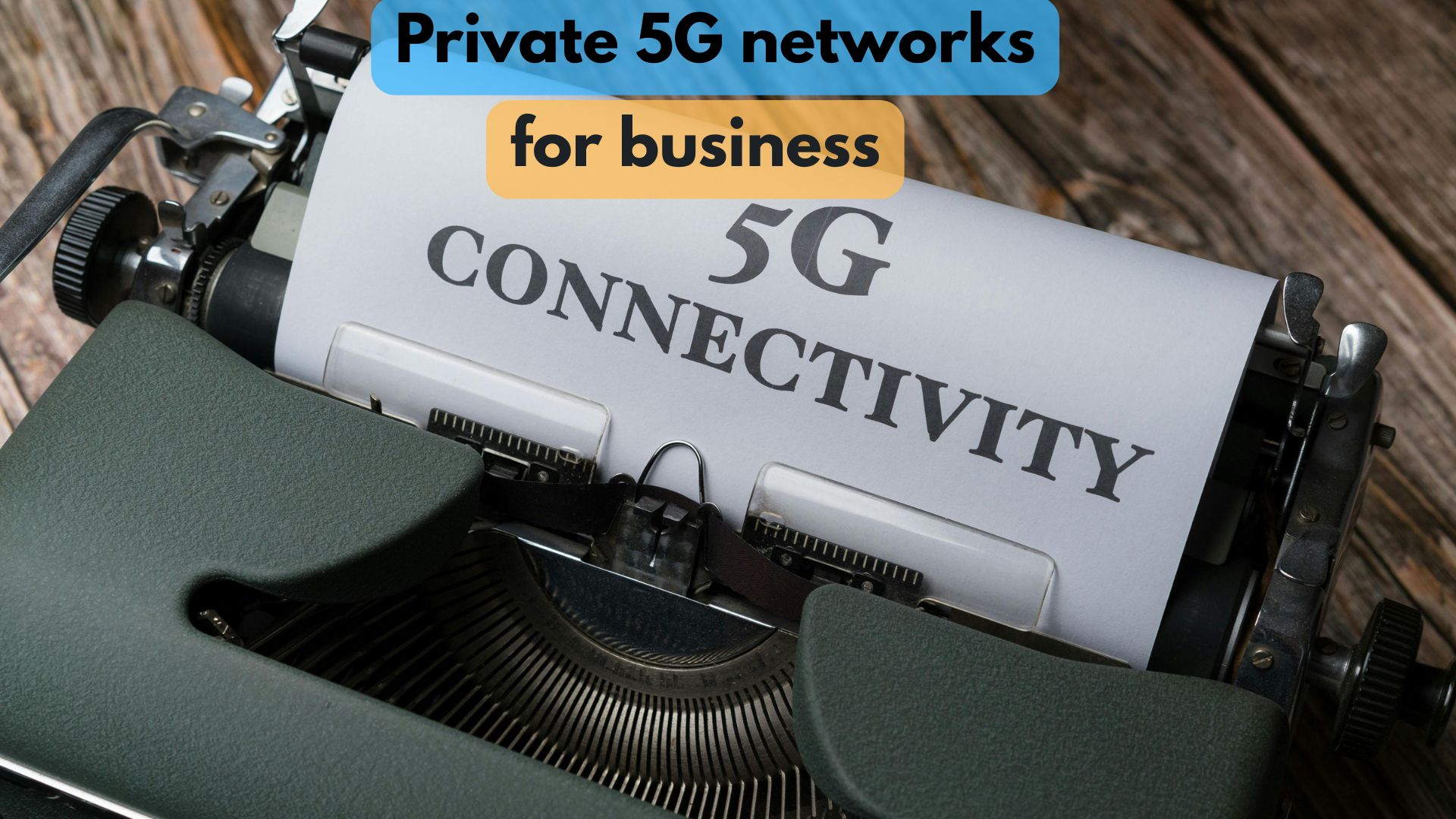Private 5G Networks for Business: Unlocking Secure, High-Performance Connectivity
As businesses grow increasingly dependent on digital infrastructure, traditional wireless solutions often fall short in delivering the speed, control, and reliability that enterprises demand. Enter private 5G networks—a game-changing innovation offering dedicated, secure, and high-performance wireless communication tailored to specific business environments.
This comprehensive guide explores the role of private 5G in modern business, its benefits, use cases across industries, providers, and key considerations for deployment.
What Is a Private 5G Network?
A private 5G network is a standalone mobile network that operates exclusively for a particular organization. Unlike public 5G services offered by telecom carriers, a private 5G network is deployed on-premise and provides:
-
Full control over data traffic
-
Enhanced security and privacy
-
Customizable network performance
Businesses can use licensed, unlicensed, or shared spectrum to operate private 5G, depending on regional regulations.
📌 According to Ericsson, private 5G networks are ideal for environments where wireless performance and security are critical, such as manufacturing plants, logistics centers, and corporate campuses.
Why Private 5G Is Gaining Momentum in Business
Private 5G combines the high throughput and low latency of public 5G with the flexibility and control of enterprise-grade networking. Let’s break down the key benefits.
✅ 1. Ultra-Reliable Performance
-
Low latency (as low as 1ms) enables real-time applications like industrial automation and augmented reality.
-
High-speed data rates (up to 10 Gbps) support mission-critical workloads such as HD video surveillance and real-time analytics.
✅ 2. Improved Security
Unlike public networks, private 5G ensures that sensitive data remains on-site. With localized infrastructure, companies can enforce custom cybersecurity protocols.
🛡️ According to Nokia, their private 5G platforms are designed with enterprise-grade security in mind.
✅ 3. Network Customization
Businesses can configure the network’s:
-
Quality of service (QoS)
-
Traffic prioritization
-
Device connectivity
-
Mobility management
This flexibility is not possible with shared public networks.
✅ 4. Greater Control and Privacy
Organizations own or control their private 5G spectrum and infrastructure, making it easier to comply with data protection laws like GDPR or HIPAA.
Common Use Cases Across Industries
Private 5G is being adopted across numerous sectors for a variety of advanced applications.
| Industry | Use Cases |
|---|---|
| Manufacturing | Automation, predictive maintenance, robotics, real-time monitoring |
| Healthcare | Remote diagnostics, telemedicine, patient monitoring |
| Logistics & Warehousing | Autonomous mobile robots (AMRs), inventory management, real-time tracking |
| Education | Virtual learning environments, smart classrooms |
| Energy & Utilities | Remote infrastructure monitoring, automated maintenance alerts |
🚚 For example, logistics companies use private 5G to streamline warehouse operations with connected IoT sensors and autonomous robots.
Top Private 5G Network Providers
Several tech giants and telecom companies now offer tailored private 5G solutions. Here’s a quick comparison of some key players:
| Provider | Key Features | Best For |
|---|---|---|
| Verizon | Scalable enterprise solutions with edge computing integration | Large enterprises |
| Cisco | Simplified deployment with full network orchestration | IT-heavy businesses needing easy setup |
| Ericsson | Turnkey industrial-grade networks | Manufacturing and industrial environments |
| Nokia | Modular platform with private LTE and 5G compatibility | Flexible deployments across sectors |
| Celona | Focus on mid-sized businesses with plug-and-play solutions | Healthcare and logistics |
For more detail on deployment options, see the official product pages at Cisco and Verizon.
Key Considerations for Businesses
📡 Spectrum Access
Access to radio spectrum is essential. Depending on the country, businesses may need to:
-
Purchase licensed spectrum
-
Apply for a local license (e.g., CBRS in the U.S.)
-
Use unlicensed or shared spectrum
You’ll need to check regional spectrum regulations before deployment.
⚙️ Deployment Models
There are typically two deployment options:
-
On-Premise: All hardware and software are deployed at the business location.
-
Hybrid or Managed: The network is partially managed by a third-party provider.
Choose the model that best suits your IT capacity and security requirements.
🔄 Integration with Existing Infrastructure
Private 5G must be integrated with existing LANs, WANs, and enterprise software. Providers like Nokia and Cisco offer tools to simplify integration.
🧩 Scalability and Expansion
Select a provider that offers modular upgrades. If your business grows, you’ll need to add devices, expand coverage, or introduce new applications.
The Future of Private 5G Networks
Private 5G is rapidly evolving, and several trends are shaping its future:
-
Edge Computing Integration: Bringing compute resources closer to the source of data to reduce latency.
-
AI and Automation: Using AI to optimize network performance and security in real time.
-
Cross-Industry Standardization: Global standards will simplify deployment and reduce costs.
📈 A Gartner report predicts that by 2026, 60% of large enterprises will have tested or deployed private 5G networks—up from just 10% in 2022.
Private 5G vs. Wi-Fi 6: A Quick Comparison
| Feature | Private 5G | Wi-Fi 6 |
|---|---|---|
| Coverage | Large areas (entire campuses) | Smaller, indoor spaces |
| Reliability | Carrier-grade | Moderate |
| Security | High (SIM-based authentication) | WPA3 encryption |
| Latency | Ultra-low (1-5 ms) | Low (10-30 ms) |
| Device Mobility | Seamless | May require handoffs between APs |
➡️ While Wi-Fi 6 is excellent for office environments, private 5G excels in larger, more complex operations that demand higher reliability and coverage.
Final Thoughts
Private 5G networks represent a powerful shift in enterprise connectivity. With unmatched speed, reliability, and customization, businesses can unlock new levels of efficiency, security, and digital transformation.
Whether you’re operating a smart factory, managing logistics, or improving healthcare delivery, a private 5G network offers:
-
📶 Better control over your infrastructure
-
🔐 Enhanced data security
-
🔄 Real-time performance optimization
As technology continues to advance, adopting a private 5G strategy could provide your business with a competitive edge in an increasingly connected world.
